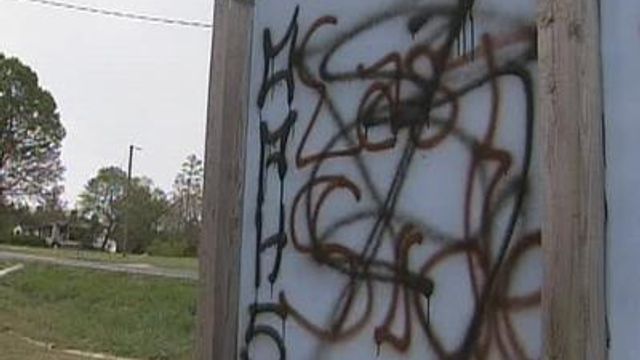Local News
Raleigh-Durham gets federal gang-prevention grant
The federal funding will go toward prevention efforts, law enforcement resources and rehabilitation of convicts to return to society.
Posted — UpdatedRALEIGH, N.C. — The federal government has awarded Raleigh-Durham a $2.5 million grant to combat gang violence.
The funds, which go into effect in June and span over the next three years, will go toward prevention efforts, law enforcement resources and rehabilitation of convicts to return to society. Both Wake and Durham counties will split the grant.
About $1 million of the grant from the Department of Justice's Comprehensive Anti-Gang Initiative will go help prevent children from joining gangs and invest in community and school programs. Another $1 million will go to give law enforcement resources to investigate and lock up violent offenders.
The remaining $500,000 will go to helping convicts return to society as productive citizens by working with community providers to provide transitional housing, job placement, substance abuse treatment and mental health counseling.
Local law enforcement agencies estimate a third to half of violent crimes committed have some kind of gang connection. More than 5,000 gang members are in the state's criminal database.
And Wake County Sheriff Donnie Harrison says about 100 gang members are housed in the Wake County Jail every day.
"Back in the late '90s, early 2000, nobody wanted to admit we had a gang problem," Harrison said Tuesday following the announcement of the grant by the Department of Justice. "That threw us behind the curve."
Now, local leaders say they want to get ahead of the problem. Acknowledging it as one, they say, is the first step.
The next steps go beyond local law enforcement.
"We know that solving this problem, for our community, will take a coordinated community approach, involving everyone from families, churches, nonprofits, local governments and law enforcement," Durham Mayor Bill Bell said.
Raleigh Police Chief Harry Dolan says that also means looking at the real problems that cause young people to join gangs.
"We have to look at what are the real causation factors," Dolan said. "The gang activity is a symptom of what's happening much earlier in young people's lives. Boys and Girls Club, after-school activities, mentorships – we have to make certain we are coming up with resources to address that issue."
Raleigh-Durham is one of four municipalities in the nation – the others are Indianapolis, Rochester, N.Y., and Oklahoma City –to receive the grant and was chosen partially because of the area's commitment and established efforts to fight gangs, the Department of Justice said.
Enacted in 2006, the Comprehensive Anti-Gang Initiative, is already in place in six other sites across the nation and has already made strides in those cities, the justice department said.
For example, in Cleveland, one of the most violent gangs operating in the area has been dismantled and prosecutions have resulted in 168 federal and state convictions.
By 2007, homicides were down by approximately 39 percent and violent crimes were down by approximately 15 percent.
• Credits
Copyright 2024 by Capitol Broadcasting Company. All rights reserved. This material may not be published, broadcast, rewritten or redistributed.





